-
 +14 +2
+14 +2"Elf on the Shelf" Analysis | Is Using Elf Spies a Good Idea?
I hope all of you enjoy this as much as I did. Happy Holidays.
-
 +6 +1
+6 +1Feelings Book: 13 Emotions You Can Feel, But Can’t Explain
In recent years, you might have seen friends or influencers using the hashtag #Hyggelife. They’re probably pictured cuddle up reading a good book, sitting with a cozy blanket, or laughing with friends. Hygge does not have a direct English translation, it is a Scandinavian word. ” Feelings Book”
-
 +13 +2
+13 +2The consistent saddle shape of Pringles
The consistent saddle shape of Pringles is mathematically known as a hyperbolic paraboloid. Their designers reportedly used supercomputers to ensure that the chip aerodynamics would keep them in place during packaging and that they would not break when being stacked on top of each other.
-
 +15 +2
+15 +2Israeli scientists claim to reverse aging process
Israeli scientists say they have managed to successfully reverse the biological aging process – using only oxygen. Recent research led by Tel Aviv University’s Prof. Shai Efrati, together with a team from Shamir Medical Center, found that when healthy adults over the age of 64 were placed in a pressurized chamber and given pure oxygen for 90 minutes a day, five days a week for three months, not only was the aging process delayed - it was actually reversed.
-
 +17 +5
+17 +5The Eye of Providence: The symbol with a secret meaning?
How has a seemingly straightforward image – an eye set within a triangle – become a lightning rod for conspiracy theorists? Matthew Wilson looks at the history of an ambiguous symbol.
-
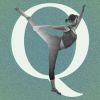 +14 +5
+14 +5How QAnon infiltrated the yoga world
It was in March when yoga instructor Jennifer Davis-Flynn noticed her Instagram feed starting to change. She saw fellow yogis expressing doubts about the severity of COVID-19, the disease caused by the novel coronavirus, challenging government-mandated lockdowns and mask-wearing regulations, and positing whether natural medicine and meditation could best protect us from the viral threat.
-
 +27 +3
+27 +3New device puts music in your head — no headphones required
LONDON (AP) — Imagine a world where you move around in your own personal sound bubble. You listen to your favorite tunes, play loud computer games, watch a movie or get navigation directions in...
-
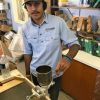 +13 +1
+13 +1'They taste delicious': Forget quinoa, Indigenous native grains could be all the rage
Ancient native grains could kick off a new industry in north-west NSW, after a year-long study by the University of Sydney finds them to be commercially viable.
-
 +18 +5
+18 +5Beyond the All Blacks — the power and meaning of haka in New Zealand today
Growing up, I thought haka was just for the boys. I thought it was just Ka Mate, the warrior dance used by the All Blacks. But after the Christchurch attacks, I saw it in a new light, and went searching for its meaning in New Zealand today.
-
 +1 +1
+1 +1844 Area Code - Location, Time Zone. Toll Free? Scam? Who's Calling?
Where do 844 area code calls come from? Are they a legitimate or a scam? How do I block an them? How do people obtain 844 numbers?
-
 +4 +1
+4 +1What is Credit Report, Understand it!
A lot of people stress out about their credit scores. Although the FICO credit score is just one thing that lenders look at, it’s often very important when trying to get a mortgage, a new credit card, or a car loan. What is My Credit Score? If you don’t know what a credit score is, … Continue reading "What is Credit Report, Understand it!"
-
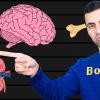 +9 +1
+9 +1HUMAN ORGAN TIER LIST
Who will be top dog?
1 comments by Gozzin -
 +4 +1
+4 +1World Reserve Currencies last on average 100 years. The US dollar has been the reserve currency for 76 years.
There is no written law that says that the US dollar must be used as the global reference for international trade. Still, companies, countries, and people from across the world use it because they have trust not only in the currency but in the USA as a country and their ability to pay back holders of their money and debt.
-
 +4 +1
+4 +1Could cold water hold a clue to a dementia cure?
Cold water swimming may protect the brain from degenerative diseases like dementia, researchers from Cambridge University have discovered. In a world first, a "cold-shock" protein has been found in the blood of regular winter swimmers at London's Parliament Hill Lido. The protein has been shown to slow the onset of dementia and even repair some of the damage it causes in mice.
-
 +15 +4
+15 +4He went down the QAnon rabbit hole for two years. Here's how he got out
One day in June 2019, Jitarth Jadeja went outside to smoke a cigarette. For two years he'd been in the virtual cult of QAnon. But now he'd watched a YouTube video that picked apart the last element of the theory he believed in. Standing there smoking, he would say later, he felt "shattered." He had gone down the QAnon rabbit hole; now, having emerged from it, he had no idea what to do next.
-
 +16 +1
+16 +1Chicken, The Best Pet Dinosaur?
This is a delightful video and those who have chickens will especially enjoy it.
-
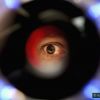 +8 +1
+8 +1The grim fate that could be ‘worse than extinction’
What would totalitarian governments of the past have looked like if they were never defeated? The Nazis operated with 20th Century technology and it still took a world war to stop them. How much more powerful – and permanent – could the Nazis have been if they had beat the US to the atomic bomb? Controlling the most advanced technology of the time could have solidified Nazi power and changed the course of history.
-
 +3 +1
+3 +1Here are 5 things serious scientists believe about extraterrestrial life
Popular culture has given us lots of ideas of what extraterrestrials might look like, behave, and interact with us. (Mostly by killing us, though occasionally by phoning home.) But it turns out a lot of serious scientists have thought about it, too. Here’s what the scientists think.
-
 +2 +1
+2 +1Do spouses really resemble each other more over time? Study says no
Quite a few online articles suggest that spouses’ faces start to resemble each other more with the passage of time. Even a fair amount of psychological literature makes the same claim, perhaps most notably one widely-cited paper from 1987.
-
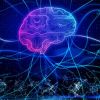 +15 +3
+15 +3The freedom paradox
Many neuroscientists and philosophers argue that there is no such thing as free will. Some even claim experiment has proved this to be the case. Yet the behaviour of the same scientists and philosophers appears to assume their own freedom - when formulating and promoting their own theory for example. To avoid this paradox, should we accept that free will is an illusion and as a consequence cease to praise our children when they do well, and refrain from punishing murderers when they are caught?
Submit a link
Start a discussion




















